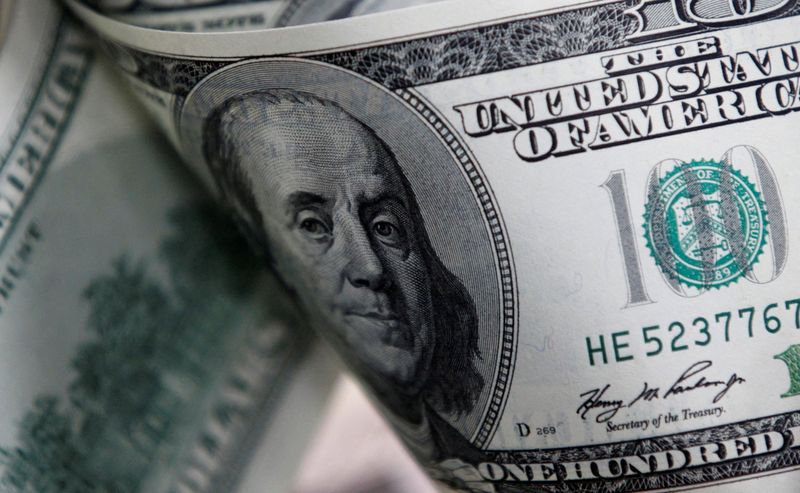By Jamie McGeever
(Reuters) - A look at the day ahead in Asian markets.
Investors in Asia go into Tuesday's session with a spring in their step following the upswing in global stocks and risk appetite on Monday, but wary that the buoyant U.S. dollar can extinguish that optimism in a flash.
Also keeping regional sentiment in check will be unease around China's economic predicament, even though purchasing managers index data over the last 72 hours showed that factory activity in November expanded at the fastest pace in months.
Much of that - the pickup in Chinese manufacturing activity, deepening disquiet about the outlook, and the dollar's renewed vigor - is tied to U.S. President-elect Donald Trump's hardline stance on trade and threats of heavy tariffs when he takes office next month.
His social media broadside on Saturday to countries contemplating backing away from the "mighty" U.S. dollar appears to have had an initial effect. Excluding Nov. 6, the day after the U.S. election, the dollar's 0.6% appreciation on Monday was its biggest rise in six months.
Europe's economic and political travails, especially in France, are certainly at play, while the yen is drawing support from bets that the Bank of Japan could raise interest rates later this month.
But the dollar's independent strength cannot be ignored, and bullish sentiment toward emerging markets is rarely sustained for long when the dollar is on the march.
Nor can China's weakness be ignored. Some analysts say the positive PMI surprises are due to a ramp up in production before tariffs from Washington are levied, and China's underlying economic health remains fragile.
China's bond market would appear to back up that assertion. The 10-year yield on Monday fell below 2% for the first time, while the 30-year yield is now below its Japanese equivalent for the first time in at least 20 years.
Still, investors will draw comfort from the S&P 500 and Nasdaq's rise to fresh peaks on Monday, and U.S. Federal Reserve Governor Christopher Waller saying he is leaning toward a rate cut later this month.
Remarkably, after Monday's spike the S&P 500 has registered more than 50 record highs this year. But will that be enough to lift Asian markets on Tuesday?
Asia's calendar on Tuesday is light, with South Korean inflation the only major economic indicator on tap. It is one of several CPI releases this week following Indonesia's on Monday and ahead of the latest snapshots from the Philippines, Taiwan and Thailand later in the week.
Economists polled by Reuters expect South Korea's annual rate of headline inflation in November to accelerate to 1.7% from a three and a half year low of 1.30% in October. That would mark the biggest jump since August last year.
Here are key developments that could provide more direction to markets on Tuesday:
- South Korea consumer inflation (November)

- Bank of Thailand governor Sethaput Suthiwartnarueput speaks
- Thailand's finance minister Pichai Chunhavajira speaks